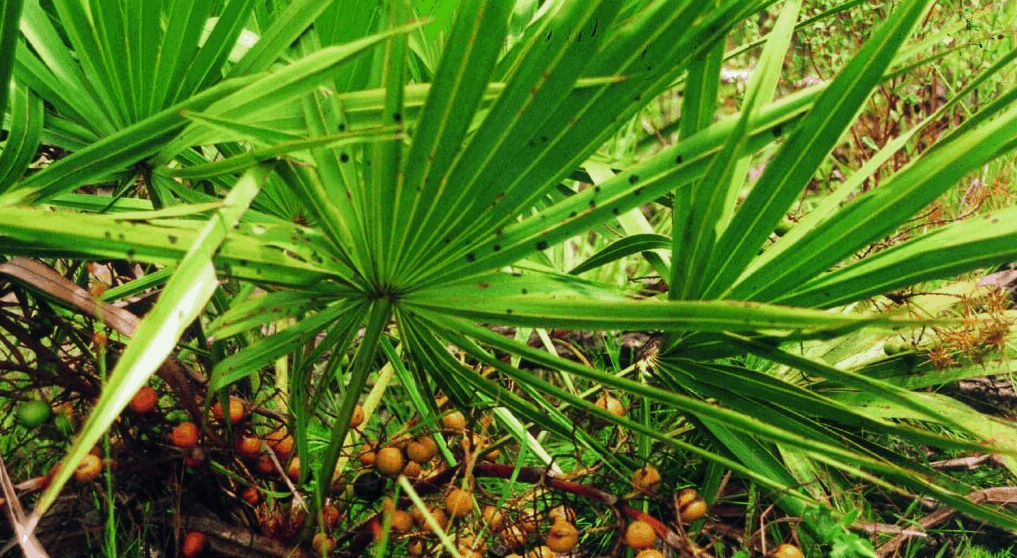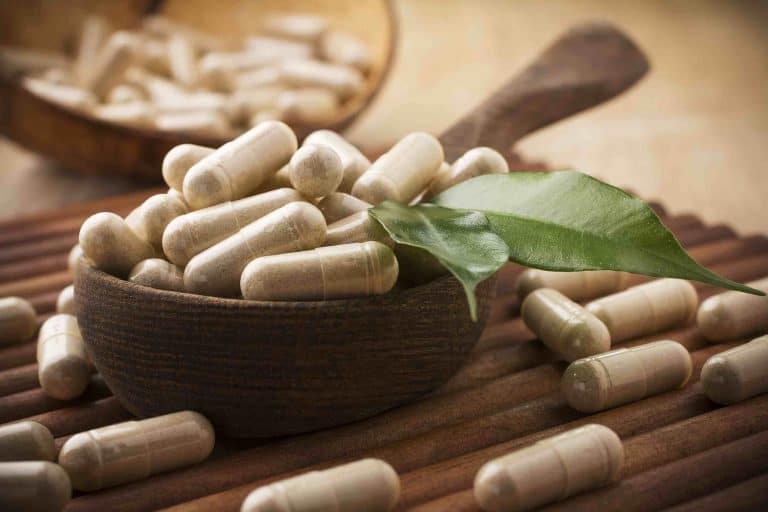When men look for natural supplements for prostatitis and general prostate health, many men stumble upon pygeum. Pygeum is an herbal remedy that is derived from the bark of the African cherry tree, which is also known as Pygeum africanum. Since ancient times, people have been using pygeum to treat bladder problems. In fact, some of the natives in various South African tribes still use the remedy today to make a tea by boiling the bark. In the 1960s, the Europeans began using a pygeum bark extract to treat mild to moderate benign prostatic hyperplasia (BPH), also commonly known as enlarged prostate. Since then, many researchers have studied pygeum bark extract for bladder and prostate health (including using Pygeum africanum for prostatitis treatment). This ancient supplement has caught the attention of nontraditional healers in several countries.
Pygeum Africanum for Prostatitis Treatment — Does It Work?
Pygeum is a Tier 2 supplement for prostatitis. That means there are significant clinical studies and research on using Pygeum africanum for prostatitis and for similar prostate conditions that may share the same types of symptoms.
Because pygeum prevents inflammation and lessens edema, it is useful for treating pain and sexual dysfunction associated with prostatitis.
Many of the available studies on pygeum involve men with BPH. Even though BPH and prostatitis are different and usually unrelated conditions, sometimes prostatitis patients share similar urinary symptoms with BPH patients. These symptoms may include the following:
- frequent urination
- nighttime urination
- problems with urinary outflow
- residual urine in the bladder
- urinary urgency
Pygeum has been shown in studies to improve urinary outflow, reduce residual urine left in the bladder, and to help with urinary urgency and frequency.
The major active components of pygeum bark are fatty acids and fat-soluble sterols called phytosterols. Phytosterols can inhibit the body’s production of dihydrotestosterone (DHT), which is a hormone that can increase the risk of BPH and prostate cancer. Pygeum also reduces the number of receptor sites where DHT can attach to cells.
Most of the research on using pygeum for male health issues has featured a pygeum extract standardized to contain 14% triterpenes including beta-sitosterol and 0.5% n-docosanol. Reserachers have extensively studied this extract in both clinical trials and experimental animal studies. There have been studies comparing pygeum against medications and even in combination with them.
Studies that involve using Pygeum africanum for prostatitis (sometimes along with other supplements) include the following:
- A clinical trial involving 47 patients with chronic prostatitis studied the effect of taking100 mg of pygeum daily for five to seven weeks. At the end of the trial, 89% of the men reported a complete remission of symptoms. (Andro 1995)
- An Egyptian study used pygeum with saw palmetto along with alpha blockers for CPPS symptoms. Researchers gave 35 men 2 mg of Cardura (doxazosin), an alpha blocker, daily for two months. Another group of 35 men took a standard dose of pygeum and saw palmetto. A third group took the drug/supplement combination, and a fourth group took a placebo. All the men filled out NIH-CPSI questionnaires before and after treatment. The alpha blocker group’s symptoms improved by 66.8%; the supplement group improved by 58.4%; and the combination therapy group improved by 72.2%. The combination therapy group also scored highest in urinary symptom scores and quality of life.
- In a study on sexual dysfunction associated with chronic prostatitis or BPH, 18 men took a double dose of 200 mg of pygeum every day for 60 days. The men who received pygeum experienced improved sexual function ad urinary parameters. Based on these findings, researchers believe that pygeum may have benefits for patients with sexual or reproductive dysfunction. (Carani 1991)
Many men with prostatitis experience urinary symptoms similar to those affecting BPH patients. When we look at the research for using pygeum for urinary symptoms associated with BPH, it can help us understand how pygeum may work for prostatitis urinary symptoms. Studies on Pygeum africanum (and components found in pygeum) for BPH include the following:
- A two-month randomized, parallel-group, double-blind, comparative phase study on men with symptomatic BPH had two groups. Group A received 50 mg of Pygeum daily; group B received 100 mg once daily. This was followed by a ten-month, open phase, during which men were given 100 mg of Pygeum once daily. The study was published in A total of 209 men completed the comparative phase and 174 finished the open phase. Results and safety were similar between both groups. Both groups had similar improvements in the International Prostate Symptom Score (group A: 38%, and group B: 35%), quality of life (28% in both), and maximum urinary flow rate (increase of 16% and 19%, respectively). The authors concluded that “P. africanum extract at 50 mg twice daily and 100 mg once daily proved equally effective and safe at two months.” (Chatelain 1999)
- Investigators isolated atraric acid (AA) from the bark of pygeum and found that it has an impact on prostate health. Because ligand-activated human androgen receptor (AR) plays a key role in supporting the growth of the prostate gland, inhibiting the androgen receptor is a main goal in patient management. Investigators at the Institute of Human Genetics and Anthropology found that AA has anti-androgenic activity and inhibits the “transactivation mediated by the ligand-activated human AR.” Specifically, the scientists found that AA can repress the broth of androgen-dependent LNCaP and androgen-independent C402 prostate cancer cells, but not prostate cancer cells that lack AR. The authors concluded that their study findings “may serve as a basis for AA derivatives as a new chemical lead structure for novel therapeutic compounds as AR antagonists, that can be used for prophylaxis or treatment of prostatic diseases.” (Papaioannou 2009)
- In a subsequent study by many of the same researchers, the scientists identified the compound N-butylbenzene-sulfonamide (NBBS), isolated from Pygeum africanum, as a specific androgen receptor antagonist. They stated that NBBS has antihormonal activity and the ability to inhibit endogenous PSA expression and the growth of prostate cancer cells. The authors concluded, “NBBS and its derivatives may serve as a novel chemical platform for treatment of prostatitis, BPH and PCa [prostate cancer].” (Papaioannou 2010)
- An early animal study evaluated the effect of Pygeum africanum in rat prostatic fibroblast proliferation. The investigators found that “therapeutic effect of Pygeum africanum may be due at least in part to the inhibition of growth factors [bFGF, EGF, IGF-I] responsible for the prostatic overgrowth in man.” (Yablonsky 1997)
- An early human 60-day study on the efficacy of Pygeum africanum extract involved 263 men with BPH. The multicenter, double-blind trial was conducted in eight centers in Europe. Researchers administered either 50 mg Pygeum africanum extract capsules or a placebo twice a day, once in the morning and once in the evening. At the end of the trial, men who had taken pygeum extract showed a “marked clinical improvement” in urinary factors (e.g., residual urine, uroflowmetry, and nighttime urination), with a 66% improvement in urination compared with 31% in the placebo group. (Barlet 1990)
- A multicenter trial conducted in central Europe explored the efficacy and safety of Pygeum africanum extract (available as Tadenan) in men (50 to 75 years old) with mild to moderate BPH. During the two-month study, the men were given 50 mg of Pygeum africanum extract twice a day. Following this phase was a one-month period during which none of the men took pygeum. Eighty-five men completed the entire study. After the two-month phase, International Prostate Symptom Score (IPSS) improved 40% and quality of life, 31%. Nighttime frequency was reduced by 32%. These improvements persisted even after one month without taking pygeum. No changes were reported in either prostatic volume or quality of sexual life throughout both phases of the study, and no adverse effects related to use of pygeum were noted. The authors concluded, “Under conditions of daily practice, Pygeum africanum extract induces significant improvement in IPSS and uroflowmetry parameters.” (Breza 1998)
- Researchers in a European study asked 134 patients to take capsules containing extracts of stinging nettle and pygeum. After 28 days, the men’s symptoms of urine flow, residual urine, and nighttime urination were significantly reduced. Both pygeum and stinging nettle contain large amounts of beta-sitosterol, another prostate supplement.
Uses and Side Effects of Pygeum Africanum
Extract of pygeum does not interact with other drugs and can even be used to enhance the effectiveness of medications and other supplements. The most common daily dose of pygeum is 75 to 200 mg capsules of standardized pygeum extract (bark; 13% total sterols) taken daily either as a single dose or divided into two equal doses. People usually tolerate pygeum well, but it may cause possible side effects such as nausea, loss of appetite, and abdominal pain.
References for Pygeum Africanum for Prostatitis Treatment:
Andro MC, Riffaud JP. Pygeum africanun extract for treatment of patients with BPH: a review of 25 years of published experience. Curr Ther Res. 1995;56:796-817.
Barlet A et al. Efficacy of Pygeum africanum extract in the treatment of micturational disorders due to benign prostatic hyperplasia. Evaluation of objective and subjective parameters. A multicenter, randomized, double-blind trial. Wein Klin Wochenschr 1990;102:667–73.
Breza J et al. Efficacy and acceptability of tadenan (Pygeum africanum extract) in the treatment of benign prostatic hyperplasia (BPH): a multicentre trial in central Europe. Curr Med Res Opin 1998; 14(3):127-39.
Carani C, Salvioli V, Scuteri A, et al. Urological and sexual evaluation of treatment of benign prostatic disease using Pygeum africanum at high doses. Arch Ital Urol Nefrol Androl. 1991 Sep;63(3):341-5.
Chatelain C et al. Comparison of once and twice daily dosage forms of Pygeum africanum extract in patients with benign prostatic hyperplasia: a randomized, double-blind study, with long-term open label extension. Urology 1999 Sep; 54(3):473-78.
Mantovani F. Serenoa repens in benign prostatic hypertrophy: analysis of 2 Italian studies. Minerva Urol Nefrol 2010 Dec; 62(4): 335-40
Papaioannou M et al. NBBS isolated from Pygeum africanum bark exhibits androgen antagonistic activity, inhibits AR nuclear translocation and prostate cancer cell growth. Invest New Drugs 2010 Dec; 28(6): 729-43
Papaioannou M et al. The natural compound atraric acid is an antagonist of the human androgen receptor inhibiting cellular invasiveness and prostate cancer cell growth. J Cell Mol Med 2009 Aug; 13(8B): 2210-23
University of Maryland Medical Center
Wilt T et al. Pygeum africanum for benign prostatic hyperplasia. Cochrane Databases of Systematic Reviews 2002; (1)CD001044
Yablonsky FP et al. Antiproliferative effect of Pygeum africanum extract on rat prostatic fibroblasts. J Urol 1997; 157:2381-87.







